In her first year at Cornell, Megan Unrath ’21 went on a field training exercise with her Army ROTC (Reserve Officer Training Corps) cohort. The group included ROTC students from Cornell, Ithaca College, SUNY Cortland, Binghamton University, Elmira College, and Wells College. It was bitter cold, and they were outdoors doing tactical training. Megan says this experience was pivotal for her. In the blizzard, she and her peers bonded around the bigger mission that underlies the physical and mental challenges they were enduring.
“In the moment, when you’re doing some type of tactical exercise, you think to yourself, what is this going to do for my life? I remember thinking, ‘I want to be a doctor. I want to work in a hospital. I don’t need to know all these things from the Ranger handbook. Like, why do I need this?’
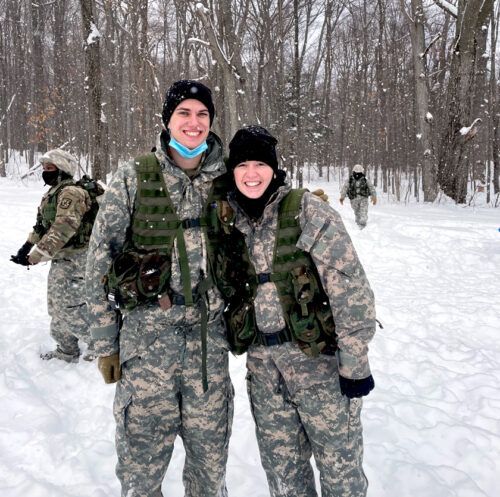
But then I realized, ‘Oh, they’re teaching me this so that I can think under pressure. They’re teaching me this so that I know how to talk to people, how to communicate to my squad, how to be a leader that people look to, how to make quick decisions, and how to problem solve.’”
Megan says that once she understood the bigger purpose of what she was doing, she realized that she and her ROTC peers shared some core values. They believed in the value of service—to their squad, to their community, and to their country.
Following her core values
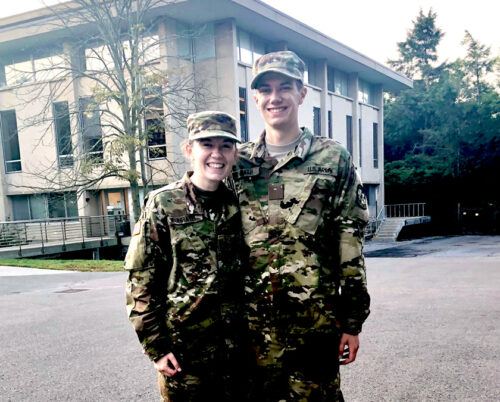
Following her core values led Megan to the conclusion that she wanted to become a doctor.
She was a Human Biology, Health, and Society major in the College of Human Ecology. The interdisciplinary nature of the major was what initially attracted Megan to apply to Cornell. She had always enjoyed learning about science, but it was her military service that helped her recognize that she wanted to practice medicine in the Army.
“For me it was wanting to be part of something bigger than myself,” she says, “and also wanting to serve with the people and for the country that has given us so much.”
The friendships and mentorship she received through her ROTC training helped Megan to recognize that she could be a leader among her peers, both within and outside the classroom.
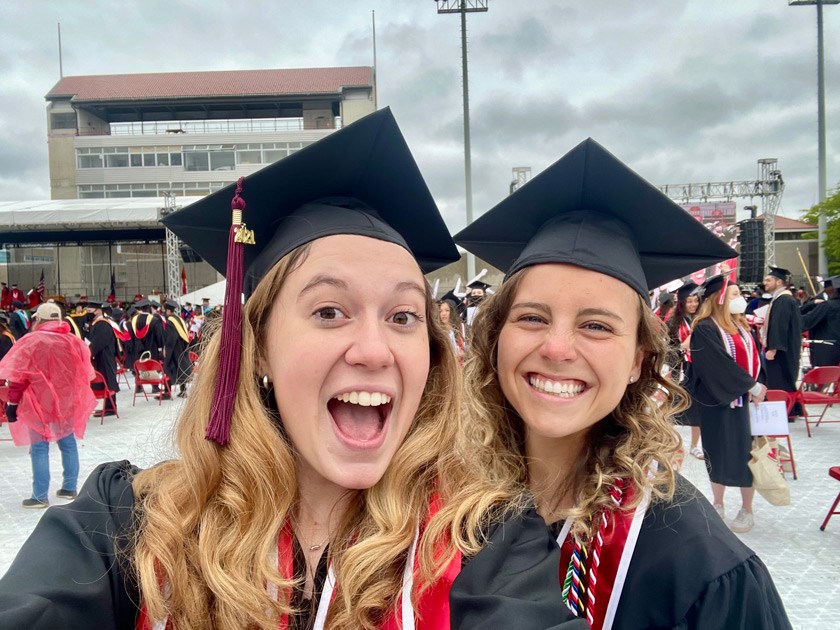
During her Cornell career, Megan served as a Human Ecology ambassador to prospective students, a member of Delta Delta Delta sorority (which has a focus on service to St. Jude’s Hospital), a chemistry teaching assistant, and president of the Cornell Pre-Professional Association Toward Careers in Health (Cornell’s largest health-related student club).
She practiced discipline by consistently showing up for 6:00 a.m. physical training at Barton Hall—which also helped her through the mental rigors of her pre-med coursework. It was challenging, Megan says.
“I look back at it, and college was hard. But I think life is difficult,” she reflects. “I owe a lot to the people that I met at Cornell, the classes that I took, and the mentors that I had. They encouraged me, pushing me to see that I could do this, I could be a doctor, and I could go to medical school.”
Becoming a doctor
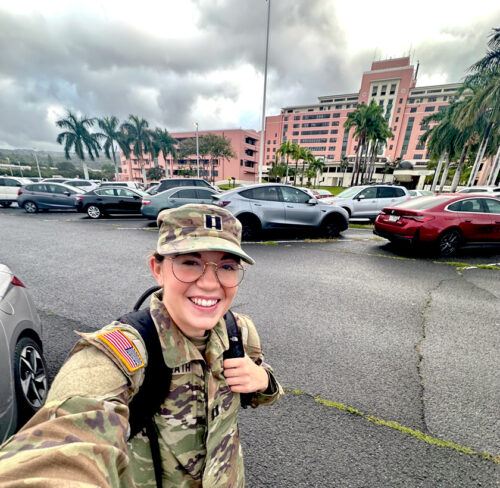
In her senior year, Megan applied for and won a competitive national scholarship through the military’s Health Professions Scholarship Program. This award covered the full cost of medical school at Kansas City University (KCU), in Megan’s home state. In return for the scholarship support she received for her undergraduate education at Cornell and for medical school, Megan will spend eight years as an active-duty officer in the Army. This timetable starts once Megan completes her three-year medical residency.
Megan graduated from KCU in May 2025 and moved to Hawai‘i to begin her pediatric physician residency at Tripler Army Medical Center. Like Cornell and like medical school, Megan reports that her residency program is rigorous. She works six days a week, serving patients from military families in Hawai‘i and from U.S. Army facilities throughout the Pacific region.
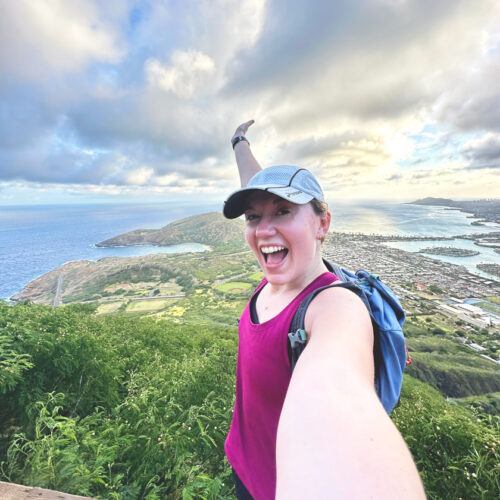
She is currently rotating through training in the various specialties that she needs to master to work as a pediatrician. These include everything from cardiology, to endocrinology, to neonatal intensive care. Megan says she loves the field of pediatrics because of its interdisciplinary nature.
“The opportunities are endless, and there are a lot of different things I can do with the Army and with pediatrics, too,” she says. “It depends on the kind of medicine I’m interested in doing, whether that be clinical or operational. I could be assigned as the doctor for a unit, or as a pediatrician in a clinic, or pursue a fellowship and become a specialist—like a pediatric nephrologist or pediatric endocrinologist.”
For now, Megan is juggling her medical residency with her responsibilities as a military officer. She recently attended a two-week combat casualty care course in San Antonio, Texas.
Looking ahead, Megan says she sees a fellowship in her future. Fortunately, the Army has many opportunities for her to continue her education, when the time is right.


